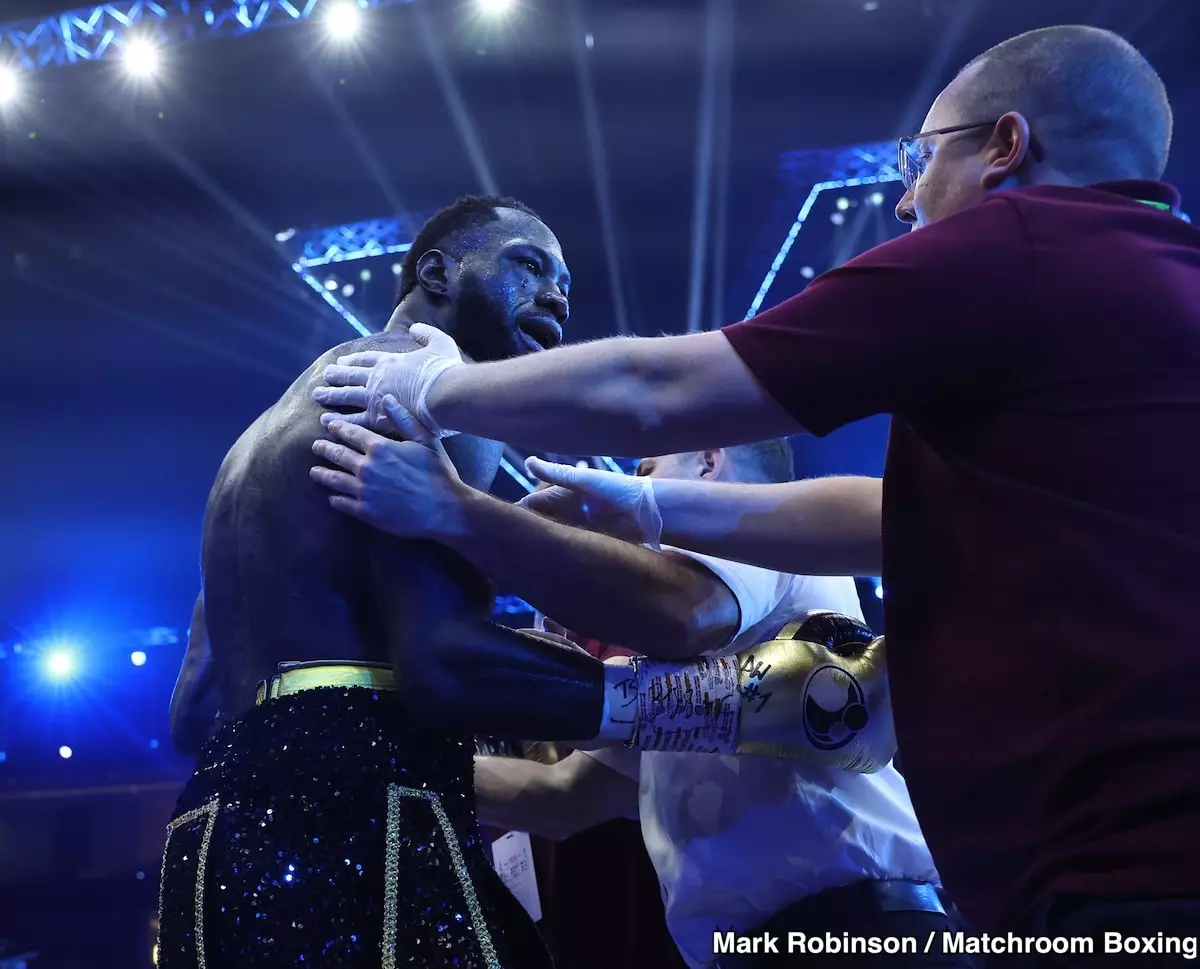As Deontay Wilder prepares to step back into the ring for a 10-round bout against Tyrrell Herndon in Wichita, Kansas, one can’t help but feel a mixture of intrigue and skepticism. The once-mighty heavyweight champion, known for his explosive knockout power and thrilling fights, now faces a growing list of doubts following two devastating losses. With a record that now reads 43-4-1, his recent form raises legitimate concerns about his capability to reclaim his status among the elite in boxing.
The venue choice speaks volumes; Wichita is not the boxing mecca that Las Vegas or Madison Square Garden represents. Instead, it suggests a strategic decision to minimize risk while allowing Wilder to re-establish a foothold in the sport. Herndon, while experienced at 24-5, is hardly a household name or a stepping stone comparable to the legendary fighters Wilder has battled in the past. It appears that this match serves multiple purposes: a chance for Wilder to regain his confidence, to keep his name alive in the sport, and to lure back fans who may have begun to drift away since his last triumph.
Assessing the Opponent: Herndon’s Modest Profile
Tyrrell Herndon’s reputation as a journeyman should not be underestimated, yet he is clearly not the caliber of opponent that stirs excitement. Having lost to non-entities in the boxing world, Herndon’s last fight—a split decision win—was only a flicker in an otherwise mediocre career. Facing a former champion who has fought some of the best in the sport may seem like an easy night at the office for Wilder, but this matchup screams more of a glorified sparring session than a return to championship form.
Wilder’s camp and promoters present the bout as a „legacy reloaded,“ which is a euphemism that fails to account for the visible wear and tear on Wilder’s image as an elite fighter. Postscripts of historical legacy are not written merely with knockout power; they require a foundation built on substantial and competitive victories. Ultimately, every fighter’s legacy is shaped by the quality of their opponents. Here, one could argue that Wilder’s path resembles not a glorious resurrection, but an attempt to navigate the remnants of a fractured journey.
The Hallmarks of Decline
Wilder’s last significant bouts have not only been losses but also stark reminders of his vulnerabilities. His famous trilogy with Tyson Fury, while celebrated for its drama, characterized a downward trajectory rather than a showcasing of dominance. In two of those encounters, he not only suffered defeat but was decisively outclassed. A power puncher like Wilder evokes memories of breathtaking knockouts, not prolonged exposure to a relentless powerhouse like Fury. While he remains an explosive knockout artist, the magic of the myth has dimmed: the fear factor, once palpable in opponents’ eyes, has disappeared.
As Wilder’s mystique frays, questions arise about his strategy going forward. Without the ability to instill fear in his rivals, will he be able to transition smoothly into a new chapter of his career? The current fight might momentarily revive the audience’s interest, but real credibility cannot be claimed with such a deliberate lowering of ambition. This is not just about physical prowess; it is also about mental fortitude and tactical execution that seems to have waned over the years.
The Greater Fight: Confidence vs. Reality
For Wilder, this fight represents more than just a ticking clock on a sporting calendar; it stands as a crossroads. The answers that lie beneath this façade of „comeback“ are crucial. Will Wilder knock out Herndon in spectacular fashion, thereby sparking a brief resurgence in anticipation for future matches? If so, the spectacle could momentarily revitalize his brand. However, a mere victory against a low-tier opponent won’t rekindle the fires that once burned within the heavyweight division.
While success might lead to opportunistic promotions or even a shot at redemption, there’s an unmistakable risk of further entrenchment in mediocrity. In boxing, such career extensions can often lead to indefinite stasis rather than significant improvement or resurgence. Fans and analysts will remain skeptical, waiting to see if Wilder can achieve a resurgence worthy of the heavyweight lineage or continue to linger in the twilight of a once-promising career. The question looms large: can he still carve a meaningful legacy from the rubble of past greatness? The outcome in Wichita holds the answers, for better or worse.


Napsat komentář